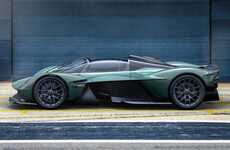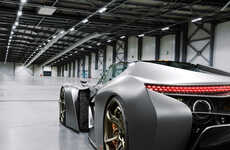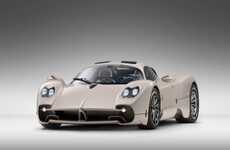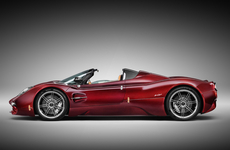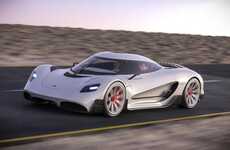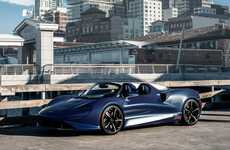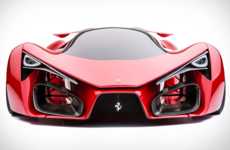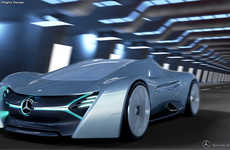
The Icona Vulcano is Proudly Touted as the World's First Titanium Car
Gurveer Brah — August 14, 2015 — Autos
References: iconavulcano & hypebeast
As far as the exclusivity that car aficionados seek, it doesn't get any more exclusive or exotic than the world's first titanium car.
The 'Icona Vulcano' was first designed in Shanghai, China and built in Italy. With the former powertrain technical director of Ferrari, Claudio Lombardi behind the mechanical side and Samuel Chuffart behind the design elements, this jaw-dropping beast is nothing short of an automotive triumph.
Inspired by the world's fastest plane, the 'Blackbird SR-71,' the design uses hand-crafted carbon fiber and titanium to create the curvaceous and lustrous construction. With a supercharged 670 horsepower V8 engine, the car boasts a zero to 60 mile-an-hour time of 2.8 seconds. As unique as they come, the car is only a one-off, meaning you shouldn't expect to see it on the street any time soon.
The 'Icona Vulcano' was first designed in Shanghai, China and built in Italy. With the former powertrain technical director of Ferrari, Claudio Lombardi behind the mechanical side and Samuel Chuffart behind the design elements, this jaw-dropping beast is nothing short of an automotive triumph.
Inspired by the world's fastest plane, the 'Blackbird SR-71,' the design uses hand-crafted carbon fiber and titanium to create the curvaceous and lustrous construction. With a supercharged 670 horsepower V8 engine, the car boasts a zero to 60 mile-an-hour time of 2.8 seconds. As unique as they come, the car is only a one-off, meaning you shouldn't expect to see it on the street any time soon.
Trend Themes
1. Exclusive Supercar Designs - Opportunity to create unique and limited edition supercars using exotic materials like titanium and carbon fiber.
2. Titanium and Carbon Fiber Construction - Potential for using titanium and carbon fiber in various industries such as aerospace, architecture, and sports equipment.
3. High-performance Electric Vehicles - Disruptive innovation opportunity to combine the power of high-performance sports cars with electric vehicle technology.
Industry Implications
1. Automotive - Incorporating exclusive materials and unique design elements into luxury automotive manufacturing.
2. Aerospace - Exploring the use of titanium and carbon fiber in aircraft construction to create stronger and lighter planes.
3. Architecture - Applying titanium and carbon fiber materials to create innovative and sustainable architectural designs.
5.1
Score
Popularity
Activity
Freshness

